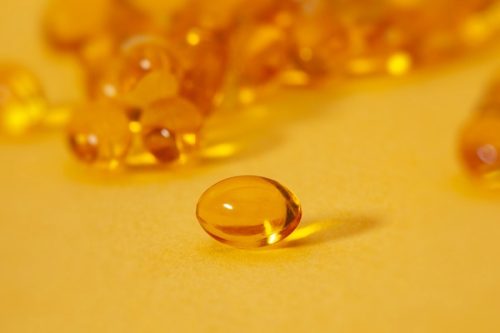
In recent years, hyaluronic acid (HA) supplements have become popular and are often used as a part of an anti-ageing regime. People also take them with joint issues and other health concerns and conditions.
But do they work, and is it worth taking hyaluronic acid supplements? In this post, we explore the importance of HA to the functioning of the human body and the research into the benefits of hyaluronic acid when taken orally.
Each and every connective tissue and organ in the body contains hyaluronan (HA), including the skin, synovial fluid, blood vessels, serum, the brain, cartilage, heart valves and eyes. The body’s largest organ is the skin, which contains 50% of the body’s overall HA. Hyaluronic acid is a potent antioxidant, but it is arguably best known for its capacity to bind water to tissue. Hyaluronic acid can hold more than 1,000 times its weight in water, making it a powerful humectant that retains fluids.
Hyaluronic acid has many applications with its outstanding physicochemical characteristics, such as biodegradability, biocompatibility, nontoxicity and non-immunogenicity (does not provoke an immune response). For decades, HA has been used in osteoarthritis surgery, ocular surgery, tissue engineering and for effective drug delivery.
Hyaluronic acid has a variety of vital functions within the body. It makes up a significant portion of epithelial tissue and affects cell division and mobility. It also serves as a lubricant and is a major component of synovial fluid (the fluid found inside synovial joints like the hips) of humans. Hyaluronic acid is also present in joint cartilage, where it encases every single cell and even contributes to the function of the natural immune system. Furthermore, research indicates that tests for high plasma levels of hyaluronic acid can detect many types of cancer, including breast and bone cancer.
Ageing, sun exposure, smoking and airborne pollutants are a few causes associated with decreasing the level of HA in the human body. Due to these hazards, HA supplementation has become more common. Hyaluronic acid supplements are available in various forms, such as tablets and capsules. Even a liquid form is available, which you combine with water and swallow.
Most people are safe to use hyaluronic acid (HA) supplements, and some clinical studies have demonstrated their positive effects on several health conditions.
Generally, you should consult a doctor before taking an alternative supplement, particularly if you:
• Take prescription drugs
• Are undergoing medical treatment
• Have an ongoing health issue or chronic health condition
You might additionally want to speak with a doctor about available hyaluronic acid solutions for several different health issues, including:
• Skin health — particularly for irritation, scars, discomfort and skin conditions like actinic keratosis and scleroderma
• Eyes — particularly for alleviating dry eyes
• Joint pain — research shows that oral hyaluronic supplements may alleviate joint pain by reducing inflammation
• Wounds that take a considerable time to heal
• Bladder pain, especially for the treatment of interstitial cystitis
• Chronic respiratory conditions, such as asthma.
Although HA supplements might be appealing, you may already be consuming a variety of foods that contain hyaluronic acid. Ingesting foods that naturally contain HA can support your body to generate it and help to provide the body with many other essential vitamins and nutrients.
The following foods can help increase the natural production of HA and are also excellent sources of potassium and vitamins A, C and B6. Plus, they are rich in fibre, antioxidants and other beneficial nutrients for your skin and overall health.
• Citrus fruits
• Bananas
• Kale, spinach and green leafy vegetables
• Sweet potatoes
• Carrots, turnips and starchy root vegetables
• Chia seeds
• Almonds
• Tofu
• Soy milk and soy-based food
NB: As you age, hyaluronic acid levels reduce. This is why trying to top up hyaluronic acid levels is essential — consuming food that will support your body to produce more HA naturally is hugely beneficial.
As we grow older, the amount of HA in our bodies decreases, which may lead to dry skin that is susceptible to lines and wrinkles. Hyaluronic acid is widely recognised for its beneficial effects on the skin. Used topically, it has been clinically proven to hydrate dry skin, helping to reduce the appearance of wrinkles and other signs of ageing and accelerating tissue regeneration for faster wound healing.
A clinical study also showed test participants taking hyaluronic acid supplements outperformed the placebo group and exhibited a significant decrease in wrinkles following eight weeks of consumption. After 12 weeks, all skin suppleness and vibrancy significantly increased compared to the starting point.
Additionally, HA is the main component of the most popular dermal fillers. This is due to a low potential likelihood of an adverse reaction since the ingredient is a biocompatible substance the human body already contains. HA dermal fillers can produce results lasting anywhere from six months to two years. However, individual results may vary.
The longevity of results will depend on your age, general health and the location where injections are used. The majority of people only require yearly or biannual filler top-ups. Additionally, HA dermal fillers are reversible, so if needed, hyaluronidase can be injected to dissolve HA fillers if you are not happy with your results.
Hyaluronic acid supplements are categorised as food supplements, which are unregulatedby the Medicines and Healthcare Regulatory Agency (MHRA). If you strictly follow a vegetarian or vegan diet, you may find that HA products are unsuitable because some of them may be acquired from animal sources. For clarification, read the product packaging, contact the manufacturer or look for vegan-friendly hyaluronic acid supplements produced via microbial fermentation.
Although numerous research on ingesting HA found no substantial adverse effects, you need to proceed with due diligence if you have cancer. Women should also abstain from taking hyaluronic acid supplements while pregnant and breastfeeding because its effects during these circumstances are still unclear.
The Bottom Line — Speak with your GP or consultant before taking hyaluronic acid supplements (or any supplements) and discuss the potential side effects and contraindications. And as with all types of unregulated supplements, it is also advisable to avoid buying them from unknown manufacturers and sellers, especially online.
In our London aesthetic clinic, we offer a variety of aesthetic procedures using hyaluronic acid (HA) dermal fillers. To learn more about decreasing scars, sun damage and fine lines and to discuss your specific concerns, schedule a free, no-obligation consultation at Harley Street MD.







